1. Meaning of currency wars
2. Background of currency wars
① Reasons for international devaluation
② Stream of currency wars
II. Example of U.S. and China
1. Current state
2. Cause
3. Problems
III. Influence to Korean economy and response strategy
1. Influence and response to appreciation or depreciation of Yuan
① The background of the recent Yuan appreciation
② The impacts of the Yuan exchange rate fluctuations on Korea
③ The countermeasures to respond to the Yuan exchange rate fluctuations
2. Influence and response to appreciation or depreciation of dollar
① The background of the recent dollar weakness
② The impacts of the dollar exchange rate fluctuations on Korea
③ The countermeasures to respond to the dollar exchange rate fluctuations
3. Influence and response strategy to appreciation or depreciation of Yen
① The background of the recent Yen weakness
② The impacts of the yen exchange rate fluctuations on Korea
③ The countermeasures to respond to the Yen exchange rate fluctuations
4. Influence and response strategy to appreciation or depreciation of Euros
① The background of the recent Euro weakness
② The impacts of the Euro exchange rate fluctuations on Korea
③ The countermeasures to respond to the Euro exchange rate fluctuations
IV. Conclusion
War using the exchange rate policy has been sustainable like Europe’s exchange rate policy in the early 20th century and Japan’s exchange rate policy after World War II. Recently, Economic purposes such as restoring slowdown of economy due to financial crisis and recovery of trade deficit are combined with political purpose and retaliatory currency manipulation in china and U.S. is on the rise. Extreme fluctuations of exchange rate of U.S. and china that account for a large proportion of exports in the export-dependent Korean economy cause Korean company’s sales decreasing and trade frictions in the international trade of Korea. What is worse is that exchange rate frictions occur all around the world as well as between U.S. and China. And also protectionism of exchange rate is current global trend. Therefore, we focus on the negative impact of domestic protective currency manipulation on Korean economy. At first, we will grasp the current situation of currency war between U.S. and China. And then, we will review the impact of exchange rate policy of U.S., China, Japan, Euro countries on Korean economy.
1. Meaning of currency wars
Currency war, also known as competitive devaluation, is a condition in international affairs where countries compete against each other to achieve a relatively low exchange rate for their own currency. According to Guido Mantega, a global currency war broke out in 2010. This view was echoed by numerous other financial journalists and government officials from around the world. Other senior policy makers and journalists have suggested the phrase "currency war" overstates the extent of hostility, though they agree that a risk of further escalation exists. This subject is very important to Korean economy which the portion of export is large. And recently the appreciation of won makes financial market get confused so KOSPI fell to 1870 line.
2. Background of Currency Wars
① Reasons for intentional devaluation
As the price to buy a particular currency falls so too does the real price of exports from the country. Imports become more expensive too, so domestic industry, and thus employment, receives a boost in demand both at home and abroad. However, the price increase in imports can harm citizens' purchasing power. The policy can also trigger retaliatory action by other countries which in turn can lead to a general decline in international trade, harming all countries.
② Stream of Currency Wars
States engage in competitive devaluation since 2010 have used a mix of policy tools, including direct government intervention, the imposition of capital controls, and, indirectly, quantitative easing. While many countries have experienced undesirable upward pressure on their exchange rates and taken part in the on-going arguments, the most notable dimension has been the rhetorical conflict between the United States and China over the valuation of the Yuan. This which began in the early 21st century is being pursued by opinions among economists have been divided as to whether it will have a net negative effect on the global economy. By April 2011 journalists had begun to report that the currency war had subsided. Some economists however have continued to assert that the conflict is still on-going.
2)정영식, 『환율 1100원 붕괴의 배경과 향후전망』, 삼성경제 연구소, 2011
3)권혁재 외 3명, 『중국의 부상과 미중 통상분쟁』, 삼성경제 연구소, 2012
4)배민근, 이창선 「미•중 환율갈등과 원화환율」, LG경제연구소, 2010.10.25
5)「美•中 큰틀서 협력…환율 문제엔 제목소리」, MK뉴스, 2012.11.7. http://news.mk.co.kr/newsRead.php?year=2012&no=731815
6)「환율전쟁- 중국과 미국은 왜 대립하는가」, 2012.11.19. http://o0wlswn0o.blog.me/90103654392
7)장보형, 「글로벌달러 약세와 달러위기」, 하나금융연구소, 2009
8)성병묵 외 2명, 「1980년대 이후 미국의 환율정책 변화」, 한국은행, 2010.12.17
9)김민정, 「원/달러 환율 1100붕괴와 파급영향 : 주력수출상품 채산성 급속악화」, 현대경제연구원, 2012
10)서영경 외 3명, 「원/달러 환율변동성이 큰 배경과 시사점」, 한국은행, 2011
11)「엔화 가치의 하락, 그 원인과 전망은?」, 금융감독원 공식 블로그 , 2012.11.19. http://fssblog.com/140155312408
12)신현수 외 1명, 「최근 엔화환율 변동이 우리 수출에 미치는 영향 」, 산업연구원, 2012.06
13)현대경제연구소 산업연구본부, 「유럽경제 침체가 국내 수출에 미치는 영향」, 2012.5.24



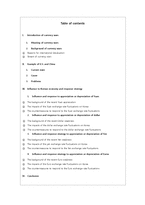

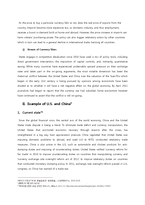
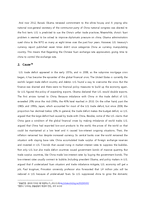
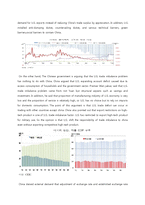
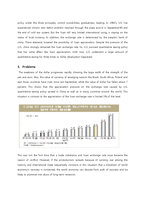
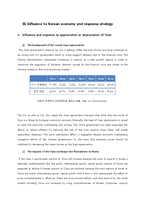
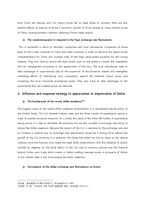
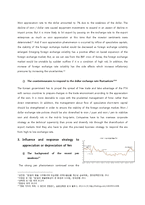
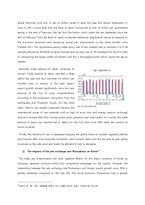
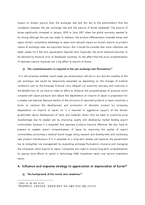
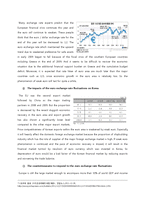
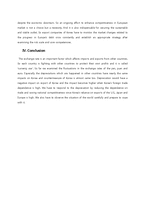
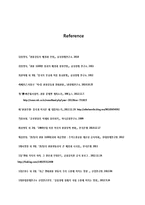
 분야
분야


